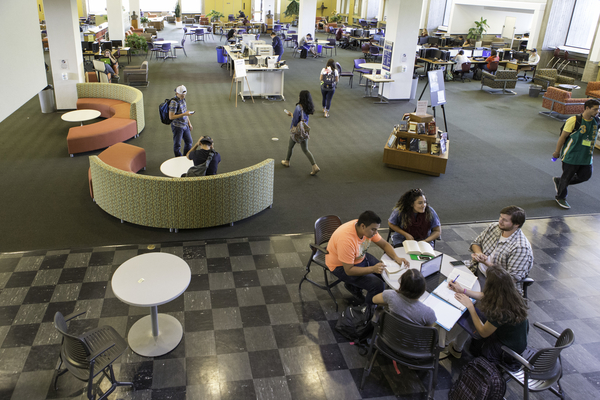College Transition Tips

College as a Microcosm:
"Colleges go to great lengths to ensure that students can obtain most of the goods,
services, and support they need without ever having to leave campus. If you take
a good look at a college campus, you will see that it is a microcosm of the “real
world.”
Students are likely to never again have this many activities and services so readily
available!"
It is important to remember that colleges and universities are a hybrid environment where both social and educational goals can be accomplished. The most successful college students find a way to balance the demands of their social and educational aspirations, but this process takes dedicated effort. This is often the first time that students move away from home and begin to establish their own identities in this new exciting and challenging environment. Students should be aware of the various ways they can easily seek support at UNC, including Disability Resource Center (DRC) for students with disabilities.
Making an effective transition into college can be an added challenge for students
with disabilities, and there are some important things to keep in mind:
PARENTS:
- As soon as a student begins college or turns 18, parents no longer have legal access to school and disability records without the express written permission of the student. It is possible for students to grant access to their parents, but it is at the student’s discretion.
- Without a signed release of information from the student, we cannot discuss any information that is specific to your student. We are, however, always happy to answer general questions about DRC, accommodations or UNC.
- DRC works in collaboration with faculty and students to ensure equal access to all campus affiliated programs and activities. We have a university-wide commitment to access, but we cannot guarantee student success.
- The most successful students are typically the best advocates for themselves and DRC is here to assist in this process.
- Accommodations a student previously received may not be appropriate at the university level. It is the responsibility of DRC in collaboration with the student to determine, based on an interview and relevant documentation, reasonable and appropriate accommodations.
STUDENTS:
- One of the major differences between high school and college is that students develop more independence. It is important that YOU become your own best advocate. DRC and the other support offices are here to assist you in that process.
- Likewise, it is up to you to seek assistance when you need it from any of the various support offices on campus (i.e. Counseling Center, Writing Center, Math Lab, etc.).
- It is not the role of DRC to monitor grades or discuss progress with faculty. However, we are here to support you and are available to work with you during your time at UNC.
- DRC staff members are available to address any issue you are having with accommodations in your courses, however it is YOUR responsibility to contact DRC and make us aware of the issue.
- Accommodations you previously received may not be appropriate at the university level. It is the responsibility of DRC in collaboration with you to determine, based on an interview and relevant documentation, reasonable and appropriate accommodations.
GREAT RESOURCES:
General Differences Between High School and College
Legal Differences Between High School and College
College: What Parents Need to Know, by Alan Farber, PhD.
Getting the Most Out of College, by Alan Farber, PhD.
Quote from, Getting the Most Out of College, Alan Farber, PhD. (Woodburn Press: Ohio, 2011).

